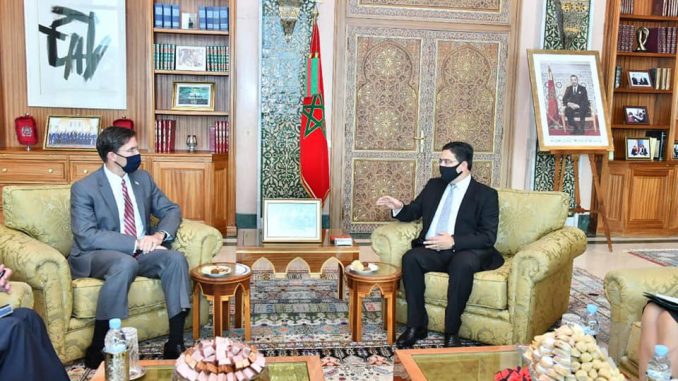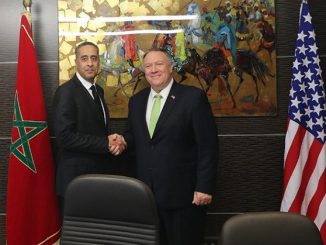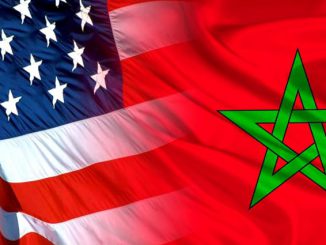
Among the many areas of strategic cooperation between the United States and Morocco, the security and military aspects have always occupied a distinct place. From the time Morocco opened its ports to U.S. ships in the 18th century, when the United States was struggling for independence, to the African Lion exercises, Rabat and Washington have always had similar views, particularly with regard to the world’s major security issues.
Over the past 20 years, this relationship has been strengthened in the post-9/11 world. Rabat and Washington were quick to agree on the importance of full security cooperation to combat the evil of terrorism.
Since 2004, Morocco has been a key non-NATO ally of the United States, as the two nations have collaborated on a number of programs to prevent and combat cross-border dangers.
The Kingdom and the United States aim to consolidate their strategic cooperation through interoperability between the armed forces of both countries. It has been particularly strengthened in recent years through joint military maneuvers and exemplary military cooperation.
The recent visits of senior officials from both countries were an opportunity to highlight the strategic importance of Rabat and Washington both on the security and military levels.
The two countries recently signed a defense agreement, described by both parties as “historic”. The agreement is entitled “Roadmap for Defense Cooperation 2020-2030 between the Kingdom of Morocco and the United States of America”. It was signed on the occasion of the visit of former Pentagon chief Mark Esper to Rabat last October.
This ten-year roadmap aims to consolidate military-security cooperation and support the Royal decision to strengthen the national military industry, Morocco being a key country to maintain the climate of security and stability in North Africa and the southern flank of the Mediterranean.
According to the Pentagon, the agreement has helped “renew the alliance between the two countries as a cornerstone for peace in Africa”.
On the occasion of his visit to the Kingdom, Mr. Esper said “Today more than ever, our countries are working together in strong cooperation to overcome the obstacles of a security environment that is becoming more complex day by day, to combat terrorism and transnational threats to regional stability, and the broader strategic challenges”. He added “we are doing this together to promote the security, stability and prosperity of the common goals of our peoples”.
The former Pentagon chief stressed that “the goal is to continually reinforce the long-standing and unwavering commitment to Morocco and, therefore, to Africa”.
He said one of the special aspects of this roadmap is the importance of the African Lion exercise, which attracts participants from across the continent. He added that “it is a key training and exercise event for many years, and not just between the United States and Morocco”.
In addition to the military aspect, cooperation in the field of intelligence is crucial for Washington, as was evidenced in the last meeting between the U.S. Ambassador in Rabat, David Fischer, with the Director General of National Security and Homeland Security, Mr. Abdellatif Hammouchi
During the meeting, the two sides discussed various security issues of common interest. In particular, they discussed mechanisms for cooperation and coordination in combating the risks of terrorism, violent extremism, organized crime and their growing links in the North Africa and Sahel region.
The two sides also discussed ways to enhance this cooperation, which has become exemplary in the fight against terrorism.
The meeting also touched upon mechanisms for developing and supporting levels of bilateral cooperation between the interests of the DGSN and DGST and US agencies in the field of combating threats and dangers related to transnational organized crime, as well as the exchange of expertise and experiences.
Considering the continued fruitful cooperation between Morocco and the United States of a military and security nature, in addition to the recognition by the United States of Morocco’s full sovereignty over its Sahara, this alliance will strengthen both countries in their fight against major transnational challenges.




Be the first to comment